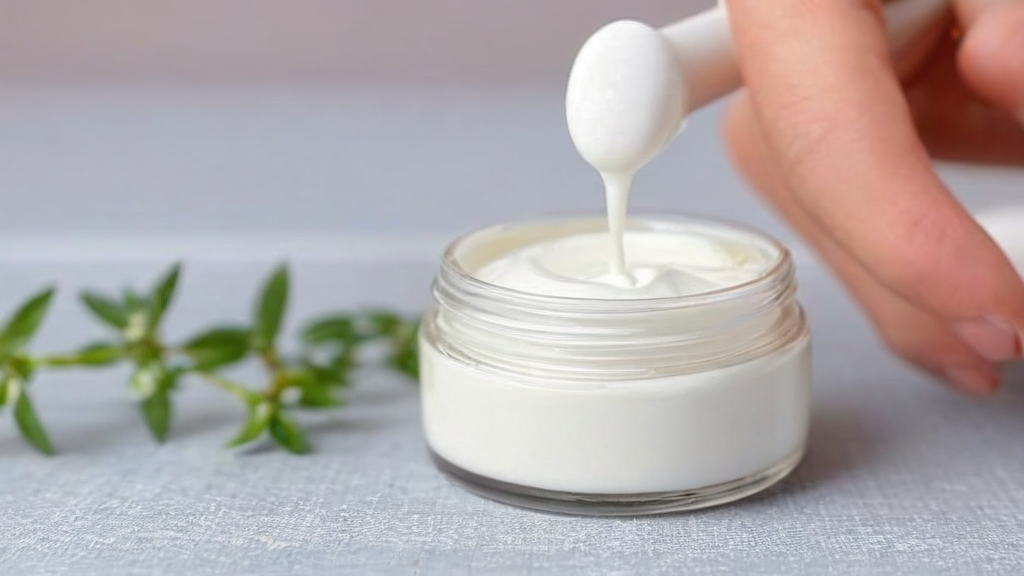The role of creams in skin care
Skin creams have been a fundamental part of beauty rituals since ancient times. Throughout history, we have witnessed the evolution of these products, from the homemade recipes of yesteryear to the most sophisticated and scientifically developed formulas of today. In this article, we will explore the role of creams in skin care, the benefits they provide, factors to consider when choosing a cream and answer some frequently asked questions about their use.
The role of creams in skin care
Skin creams play a vital role in keeping your skin healthy and radiant. These products are formulated with active ingredients that help hydrate, nourish and protect the skin from environmental factors and premature aging. Additionally, creams can address specific skin concerns, such as acne, wrinkles, or hyperpigmentation.
Benefits of using skin creams
Regular use of skin creams can provide a number of benefits. These include:
- Hydration: Moisturizers help keep skin hydrated, soft and supple.
- Nutrition: Some creams are enriched with essential vitamins and nutrients that nourish the skin and improve its appearance.
- Protection: Creams with SPF help protect the skin from the sun’s harmful UV rays, preventing premature aging and the risk of skin cancer.
- Treatment of specific problems: There are creams formulated to treat specific skin problems, such as acne, wrinkles and dark spots.
It is important to note that results may vary depending on skin type and the formulation of the cream used. It is always advisable to consult with a dermatologist to determine which cream is best for you.
Factors to consider when choosing a skin cream
When choosing a skin cream, it is important to consider several key factors. These include:
- Skin type: Each skin type has specific needs. It is important to choose a cream that is formulated for your skin type, whether dry, oily, combination or sensitive.
- Ingredients: Check the ingredients of the cream and make sure it does not contain ingredients that you can be allergic or that may irritate your skin.
- Skin care goals: Determine what your skin care goals are and choose a cream that is designed to address those specific problems, whether it be acne , wrinkles or hyperpigmentation.
- Research and reviews: Research and read reviews about the different brands and products available on the market. This will help you make an informed decision and find a quality cream.
Remember that everyone is different and what works for someone may not work for you. Try different creams and find the one that best suits your needs and preferences.
Conclusion
Skin creams play a fundamental role in taking care of our skin. They provide hydration, nutrition and protection, and can address specific skin concerns. When choosing a cream, consider your skin type, the ingredients, your skincare goals, and do proper research. Remember that consistency in the use of creams is key to obtaining effective results.
Frequent questions
What is the best cream for sensitive skin?
For sensitive skin, it is advisable to look for creams that are hypoallergenic and free of fragrances and dyes. Some gentle, calming ingredients, such as colloidal oatmeal and chamomile, may also be beneficial.
What ingredients should I look for in an anti-wrinkle cream?
Effective anti-wrinkle creams typically contain ingredients such as retinol, hyaluronic acid, peptides, and antioxidants such as vitamin C and vitamin E. These ingredients help reduce wrinkles and improve the overall appearance of the skin.
How should I properly apply a skin cream?
To properly apply a skin cream, first clean and dry your face. Then, apply an appropriate amount of cream in the palm of your hand and gently massage it into the skin in upward circular movements. Make sure to cover your entire face and neck. For best results, apply the cream twice a day, in the morning and at night.
Is it necessary to use a moisturizer if I have oily skin?
Although oily skin produces more sebum, it can still benefit from a moisturizer. Opt for a light, non-comedogenic moisturizer that does not clog pores. This will help balance sebum production and keep your skin hydrated without causing acne breakouts.
